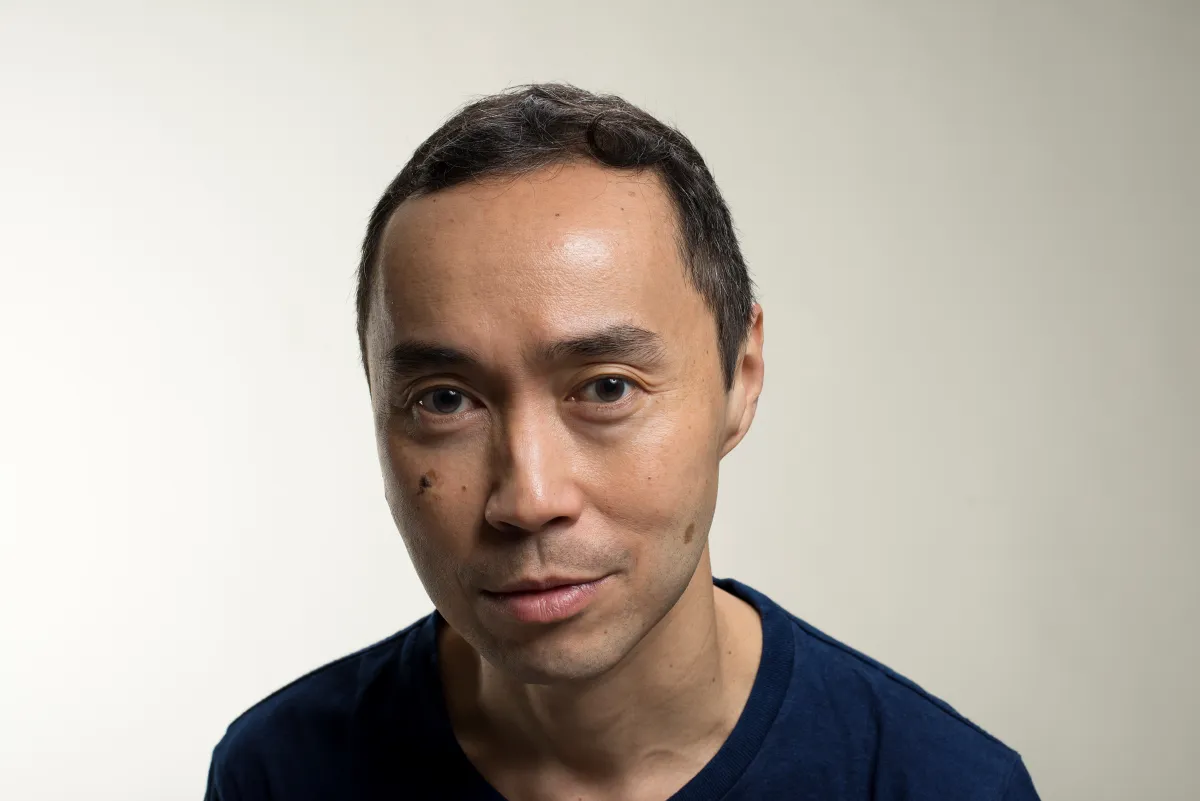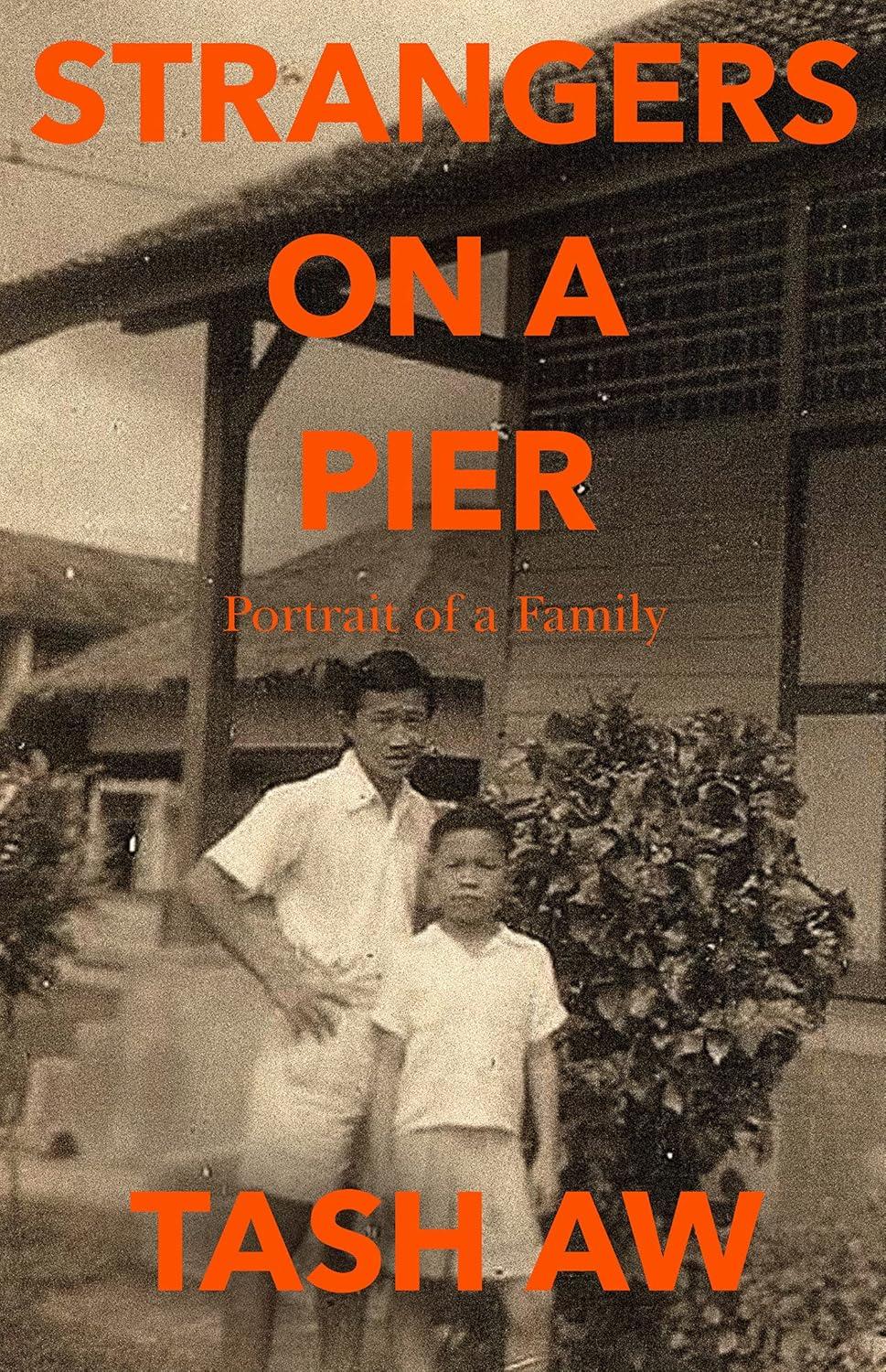Unwanted misfortune

 Fourth Estate
Fourth EstateTash Aw | Strangers on a Pier: Portrait of a Family | Fourth Estate | 98 pages | 7,49 EUR
This slim volume, explicitly not a novel, was published in English in 2016, coming after Tash Aw's rather substantial novels (The Harmony Silk Factory, Map of the Invisible World, Five Star Billionaire). Following translations into French and Spanish in 2023, it has finally been published in German by Luchterhand. But the 128 pages that make up this memoir are, in a way, the foundation of Aw's work. They tell the story of why Aw is who he is: born to Malay parents in Taipei, Taiwan, raised in Kuala Lumpur, Malaysia, in the 1970s and 1980s, eventually studying in England, and now an award-winning author (Whitbread Award, Commonwealth Writers' Prize, Booker Prize longlist) living mainly in Provence. What may sound fascinatingly polyglot to a reader without a migrant background was standard for Tash's Malay-Chinese family.
This is what Ash recounts in his memoirs. With clear and tender language, Aw traces family and national identities that, due to the colonial history of Southeast Asia, are severely fractured and lie buried, almost unrecognisable under so many layers, discernible only through confused and complex feelings. Like the shame Aw's father describes - the persistent shame of knowing, despite the renaming of colonial street names in Kuala Lumpur, Ho Chi Minh City and elsewhere in Southeast Asia, a previous inferiority to someone stronger and richer, a colonisation.
This profound trauma, Aw realises, has consequences at all levels of society. They are most visible for the young Tash, at school in a newly independent Malaysia where, as a Chinese-born Malay who speaks Mandarin and Cantonese at home, he has to quickly learn to speak Malay and English at school, following the narrative of a modern, independent state that dictates always having to be better, on a nationwide level. At the same time, this new beginning for a nation and its first generation of students is deceptive - by the age of 15 at the latest, Aw becomes aware, with sobering clarity "that our parents were by no means all equally disadvantaged and that their ambitions developed differently in just half a generation. We will see that our paths are not only tearing us apart, but accelerating our journey."
More than that, what becomes clear and painfully palpable through Aw's repeatedly laconic language, is that this division of paths and ultimately of society is accelerated not only by ethnicity, but by class and property ownership.
Aw succeeds in playfully switching from the social meta-level to everyday personal life (and vice versa) and linking the one with the other - and ultimately explaining it. This can be complicated, for example in his explanations of his partial Chinese identity, which repeatedly reaches its limits and, depending on the situation and location, is extremely fluid and far removed from a monocultural, state-supporting identity: "But if you ask more detailed questions after exchanging pleasantries and start talking about yourself, all Chinese people want to know is where you come from and how you differ from them." It's a behaviour that makes him cautious, for example when visiting Hong Kong, where Aw's poor Cantonese is received kindly, but his good Mandarin is met with barely concealed disapproval. This is reminiscent of Max Frisch and his struggle for identity, which, according to Frisch, always increases, intensifies, branches out and therefore always has to be wrested from the self anew.
This is even more difficult in Aw's case, because with every of his family's numerous migratory moves and changes of location comes a loss. It is almost impossible to be part of an identity-based past. Aw explains this extremely vividly through his relationship with his grandmother and the story of his grandmother herself, which reads like Peter Handke's memoir of his mother, A Sorrow Beyond Dreams. An uprooting that ultimately also leads to an uprooting of the families themselves and thus to identity-less personalities. These are relationships defined by separation; closeness is measured by the distance between the generations, one of whom stays, the other leaves, and the one must push the other from memory in order to survive in the new home. An ethos that is difficult to counter, as Aw must admit, perplexed: "When I asked my parents why they had left their six-month-old baby with relatives while they looked for work, they mumbled that they had no other choice. We did it so that you would never have to do the same. For our family and others like us, separation is an expression of love."
Although Aw formulates his conclusions in a resolutely personal way, based on his complex cultural background, he perhaps succeeds in drawing attention to the universality of these movements and ruptures. The small explains the big; what has happened here is happening all over the world. Aw thus achieves a small miracle: with just a few brushstrokes, he deciphers the fragile and complicated picture of our migration-marked present, the interpretation of which has increasingly slipped from our grasp in recent years.



